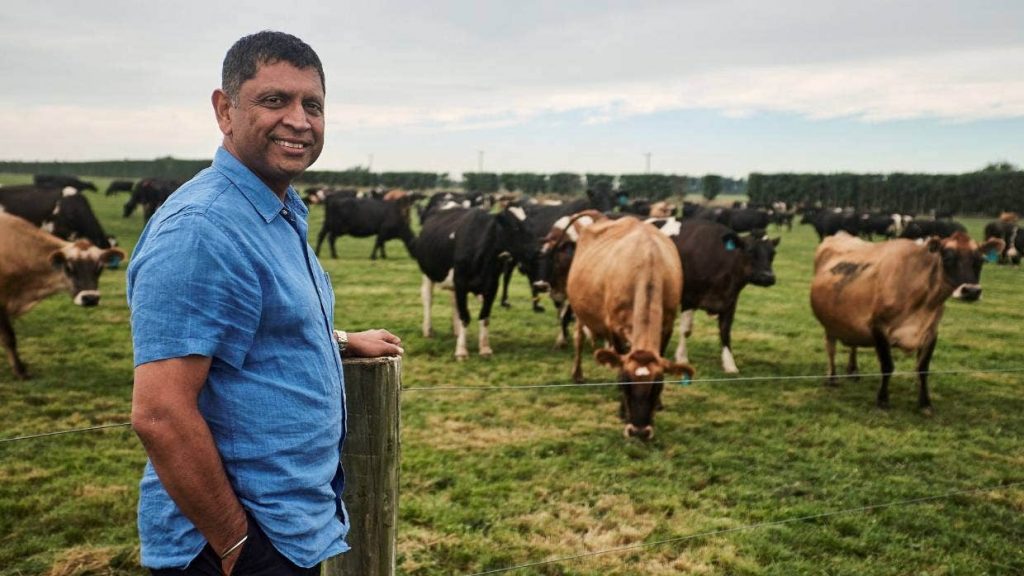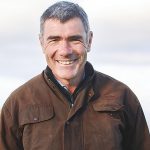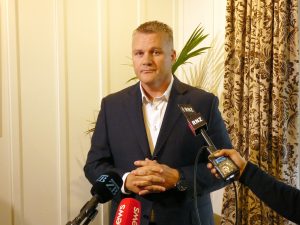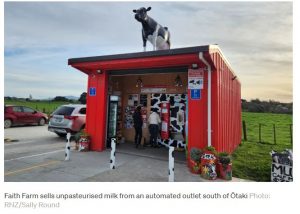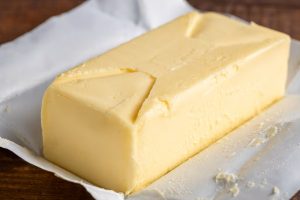
Southern Pastures is an agricultural fund that owns 19 dairy farms in south Waikato and Canterbury and was founded on the principles of long-term thinking and regenerating farm land to leave it in a better state then when it was bought, Maan said.
The butter produced by Lewis Road Creamery, half owned by Southern Pastures, and exported to the US is made from milk from nine Southern Pastures farms in Canterbury. These farms meet the company’s own welfare and sustainability standards covering grass-fed, free-range, animal welfare, environmental sustainability and climate change mitigation criteria.
The butter is the most expensive grass-fed butter per pound (nearly 500 grams) sold nationally by Whole Foods in the US and is also sold in Australian supermarket chain Woolworths, he said.
The independently audited internal “10 star premium standards” for welfare and sustainability had been key to Southern Pastures’ success overseas with consumers looking for premium products, Maan said.
“People who care about the climate, the environment, health, and animal welfare.”
Southern Pastures was recognised as an ethical investor this week by The Responsible Investment Association Australasia, which for the last six years has produced a yearly report documenting the growth of the country’s responsible investment market.
It was the only agricultural fund recognised in the report.
“We are absolutely convinced that dairy farming should be a force for environmental, not just economic, good,” Maan said.
Southern Pastures came into being 10 years ago and was founded by Maan, and three others including former All-Black captain Graham Mourie, with expectations about what ethical dairy farming could mean.
Mourie, who grew up on a dairy farm, in addition to his rugby career has farmed for most of his life and is involved in farm management planning at Southern Pastures.
Maan said that while Southern Pastures farms didn’t apply the regenerative agriculture label, they embraced many of its principles.
For example soil biology was a top priority. Southern Pastures strived for no tillage, while the ground was kept covered and deep-rooted pastures were developed.
The south Waikato farms, which supply Fonterra, had no earthworms when they were bought, so 350 cubic metres of worms were supplied. The fund was also responsible for helping to import dung beetles into New Zealand, Maan said.
Biodiversity was increased through retiring land, creating wetlands and actively planting natives. All the farms had permanent bee populations and there was also some forestry.
Maan said careful use of synthetic fertilisers, agricultural chemicals and antibiotics were all important to the way the farms were run, and it had stewardship policies to manage these.
The company was in the process of trialling biochar, a charcoal which retains nutrients in topsoil where they are available for crops.
It was also trialling the use of miscanthus on its Canterbury farms, a tall fast-growing grass that is efficient at putting carbon back into the soil, while also providing shelter belts. It can be harvested as food for cattle also.
“We want to produce carbon neutral products and eventually carbon [negative] products. We believe that our type of farming is the solution to climate change rather than the problem,” he said.
The company owns more than 6600 hectares of farmland including one organic farm and a support farm for growing stock feed. The organic farm was used to learn how to farm without antibiotics, Maan said.
The lessons learned were applied to the other farms.
“We now use less antibiotics on all our farms than what you’d be able to use under European organic standards,” he said.
The 10 star premium standardstook a stance on human and animal welfare and sustainability, he said.
For example, the farms did not dock tails or allow any of its cattle to be exported live, he said.
Maan said he would like to see the Government put a stop to live exports.
“One of our core beliefs is that animals are sentient beings, and they have to be treated humanely. Live export is inhumane.”
While it had no plans to increase the number of farms it owned, the fund hoped to attract other farmers to adopt its standards programme, Maan said.
Investors in the fund included the Swedish government and several European institutional investors looking for long term value, he said.
Long-term thinking was the fund’s competitive advantage, with expectations of getting returns in 20, 30 or 40 years, he said.
